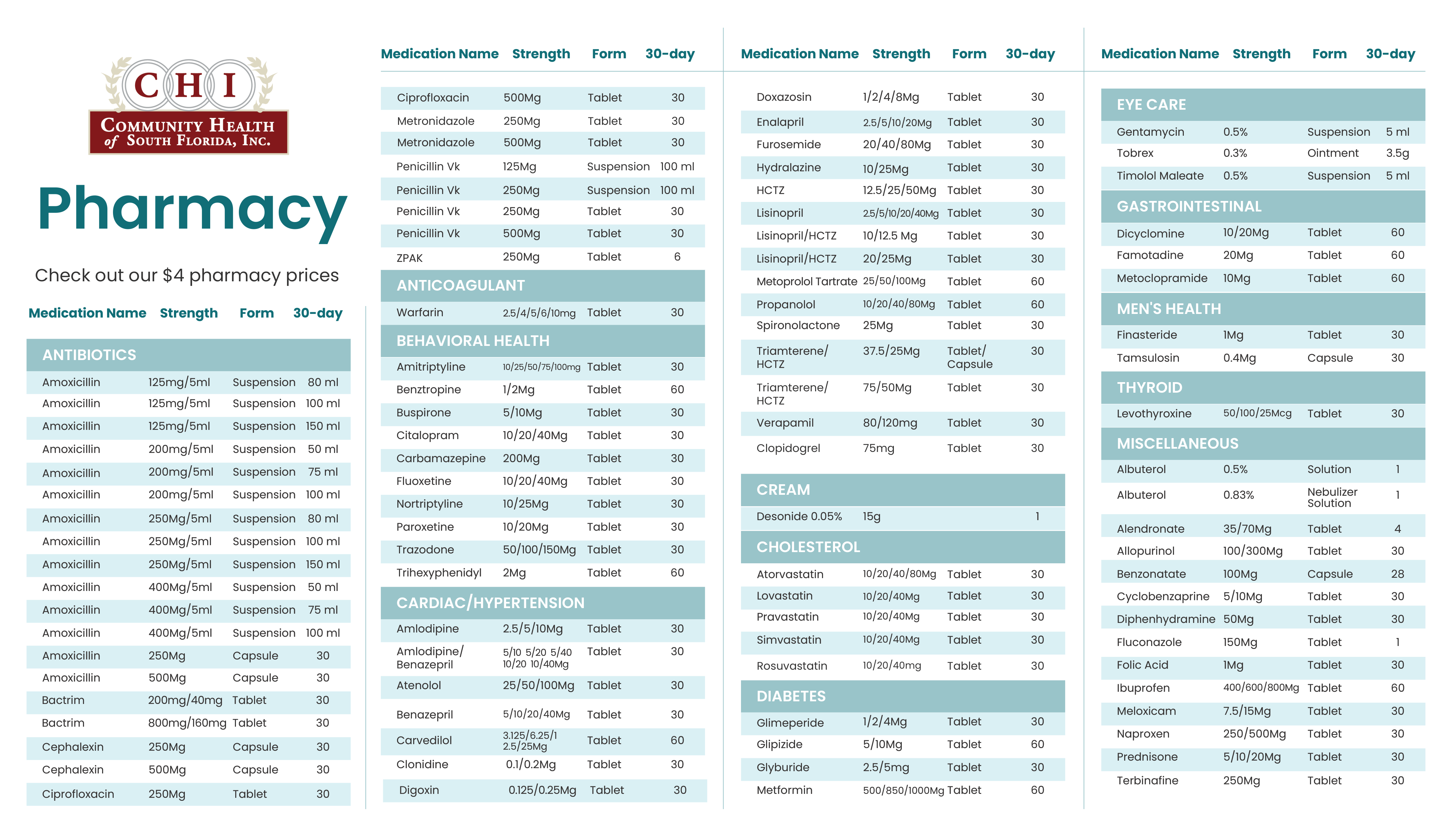New MPOX Variant Sparks Global Concern: CHI Offers Guidance on Prevention
Haga clic en la bandera en parte superior de la página para traducir al español
Pezé sou drapo anwo paj la pou Kreyol

Mpox declared a public health emergency by the World Health Organization.
Mpox cases are rising in South Florida as a new variant outbreak happens overseas. The World Health Organization (WHO) declared Mpox a public health emergency due to the increase in cases in Africa. The new variant, called Clade I, originated in the Democratic Republic of the Congo and started spreading rapidly this year. The new variant has not reached Florida; but Clade II cases are on the rise again here. Previously known as Monkeypox, Mpox is a disease that causes painful rashes like blisters or pimples, fever, body aches and swollen lymph nodes. Community Health of South Florida, Inc. (CHI) is ready to fight the spread of this disease, and CHI doctors are encouraging patients and the community to educate themselves. CHI’s Dr. Cheryl Holder offers answers and advice on how to keep yourself healthy.
How is the Clade I variant different from Clade II?
Clade I started in Central Africa and is likely to cause severe disease, while Clade II originated in West Africa and is less likely to cause severe disease. Clade II numbers are currently rising in South Florida. So far this year in Miami Dade County, there have been 48 cases and in Broward County, 23 cases.
How is Mpox being transmitted now?
Dr. Holder: Close contact is causing the spread much more than sexual closeness. Before, it was spreading due to longer physical contact. Now, the contact does not need to be as intimate. You can get it from bedding, clothing and close contact with people who are in the beginning stages of the virus. Also, currently, transmission of the virus outside of Africa is travel-related. This is unlike Clade II, that passed from travel into the community and was then passed locally by other people. Right now, there are no cases of the new variant in the United States.

Dr. Cheryl Holder, CHI family medicine physician
Why is Clade I being considered a public health emergency by WHO?
Dr. Holder: It is an emergency because it is so much easier to spread than the 2022 strain, and officials want to contain it in Africa. To prevent the spread, they are vaccinating many people in the areas where the virus is prevalent. If you are going to be traveling to these countries that are affected, you should get vaccinated.
Who is the most affected?
Dr. Holder: Previously, this disease was spreading among men who have sex with other men as well as those who have close and prolonged intimate contact. Now, it can be transmitted among anyone, and many children are affected because they play closely and share the same bed. It is no longer just skin to skin but can be transmitted by contact with infected clothes and bedding.
If you have been exposed to the disease, what should you do?
Dr. Holder: See your doctor. If you know you have been in an area with high transmission rates like places in Central Africa, please get checked.
Any misconceptions we should be aware of?
Dr. Holder: That Mpox is out in the open in the community and that you can catch it just by trying on any clothes. People should know that Clade I is not in the United States, and it is travel-related. So be informed and know your risks, especially if you do not know the travel history of the people you are coming into contact with. This virus is not transmitted by bugs, and it is not in the air. It requires you to physically be in contact with someone who has it. Don’t be afraid, talk to your doctor and use credible sources like the CDC and WHO for your health information.





